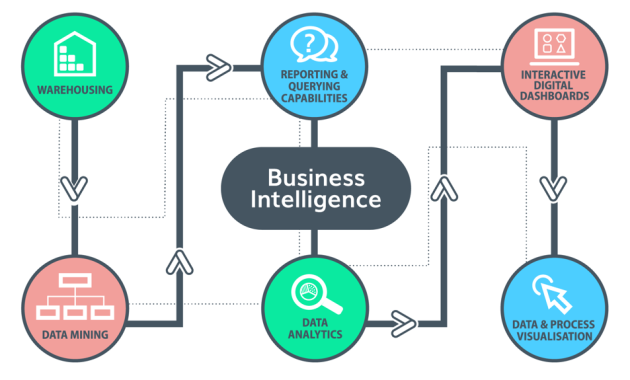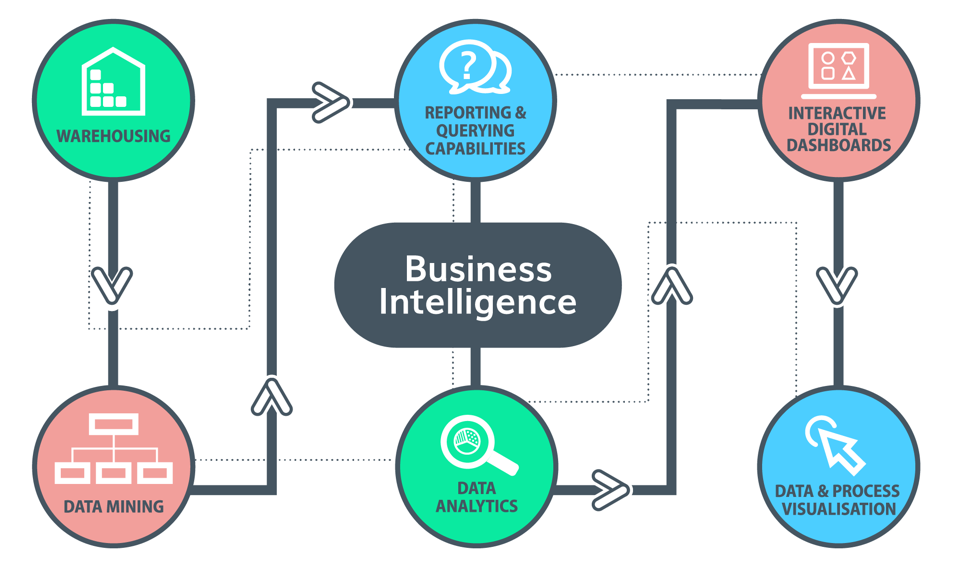
Unlock Business Intelligence Software for Performance: A Startup’s Guide to Data-Driven Success
In the fast-paced world of startups, agility and informed decision-making are paramount. The ability to quickly adapt, understand market trends, and optimize operations can be the difference between success and failure. This is where business intelligence (BI) software comes into play. This article delves into how startups can unlock business intelligence software for performance, transforming raw data into actionable insights. We will explore the benefits, implementation strategies, and real-world examples of how BI can drive startup growth and efficiency.
The Power of Data in the Startup Ecosystem
Startups are often characterized by limited resources and a need to prove their value quickly. In this environment, every decision matters. Data provides the foundation for making these crucial choices. It offers a clear view of performance, identifies areas for improvement, and helps startups stay ahead of the competition. Ignoring data is akin to navigating a ship without a compass; you may reach your destination, but the journey will be significantly more challenging.
Unlock business intelligence software for performance is more than just a buzzword. It is a strategic imperative for startups aiming to thrive. By leveraging BI tools, startups can:
- Gain a comprehensive understanding of their customers.
- Optimize their marketing campaigns for maximum impact.
- Streamline their operations, reducing costs and improving efficiency.
- Identify potential risks and opportunities.
- Make data-driven decisions that lead to sustainable growth.
Key Benefits of Business Intelligence Software for Startups
The advantages of implementing business intelligence software for performance are numerous. Here are some of the most significant benefits:
Enhanced Decision-Making
BI tools provide real-time data visualization and analysis. This allows startup leaders to make informed decisions quickly. Dashboards and reports present critical metrics in an easy-to-understand format, enabling faster and more accurate assessments.
Improved Operational Efficiency
BI can identify bottlenecks in processes and highlight areas where efficiency can be improved. By analyzing operational data, startups can optimize workflows, reduce waste, and improve resource allocation. This leads to significant cost savings and increased productivity.
Better Customer Understanding
Customer data is a goldmine for startups. BI tools enable in-depth customer analysis, revealing preferences, behaviors, and needs. This information can be used to personalize marketing campaigns, improve customer service, and develop products that meet customer demands.
Competitive Advantage
In a competitive market, data provides a significant advantage. Startups that leverage BI can identify market trends, understand competitor strategies, and adapt their offerings accordingly. This agility is critical for staying ahead of the curve.
Increased Revenue and Profitability
Ultimately, the goal of any startup is to generate revenue and achieve profitability. BI software supports this goal by providing insights that drive sales, optimize pricing, and identify new revenue streams. This leads to sustainable financial growth.
Choosing the Right Business Intelligence Software
Selecting the appropriate BI software is crucial. The right tools will align with the startup’s specific needs and budget. Consider these factors when making a selection:
Ease of Use
The software should be user-friendly, with an intuitive interface. Startups often lack dedicated data analysts, so the tool should be accessible to non-technical users.
Scalability
Choose a solution that can grow with the startup. The software should be able to handle increasing data volumes and user needs as the business expands.
Integration
Ensure the software integrates seamlessly with existing tools and data sources. This includes CRM systems, marketing platforms, and other business applications.
Cost
Consider the total cost of ownership, including software licenses, implementation, and ongoing support. Look for solutions that offer flexible pricing plans and are suitable for startups’ limited budgets.
Features
Evaluate the features the software offers. Look for data visualization capabilities, reporting tools, and advanced analytics features that meet the startup’s specific requirements.
Implementing Business Intelligence: A Step-by-Step Guide
Implementing BI software requires a structured approach. Here is a step-by-step guide for startups:
Define Objectives
Clearly define the business goals and objectives. Identify the key performance indicators (KPIs) that will be tracked to measure success. This will guide the selection of the right BI tools and data sources.
Assess Data Sources
Identify and assess the data sources available to the startup. This may include CRM systems, marketing platforms, sales data, and financial records. Evaluate the quality and accessibility of the data.
Choose the Right Tools
Based on the objectives and data sources, select the most appropriate BI software. Consider the factors mentioned above, such as ease of use, scalability, and cost.
Implement and Integrate
Implement the selected software and integrate it with the relevant data sources. This may involve data cleansing, transformation, and loading (ETL) processes.
Train Users
Provide training to users on how to use the BI tools effectively. This will ensure that everyone can access and understand the data and reports.
Monitor and Analyze
Regularly monitor the data and analyze the reports. Identify trends, patterns, and insights that can inform decision-making. Make adjustments as needed.
Iterate and Improve
BI implementation is an ongoing process. Continuously evaluate the effectiveness of the BI tools and make improvements as needed. This may involve adding new data sources, refining reports, or upgrading the software.
Real-World Examples of Startups Using Business Intelligence
Many startups have successfully leveraged business intelligence software for performance. Here are a few examples:
Example 1: E-commerce Startup
An e-commerce startup used BI to analyze customer purchase history, website traffic, and marketing campaign performance. This allowed them to personalize product recommendations, optimize their advertising spend, and improve customer retention rates. The result was a significant increase in sales and customer lifetime value.
Example 2: SaaS Startup
A SaaS startup implemented BI to track user engagement, churn rates, and customer acquisition costs. This enabled them to identify at-risk customers, proactively address their concerns, and optimize their sales and marketing efforts. The startup saw a decrease in churn and an increase in customer lifetime value.
Example 3: Food Delivery Startup
A food delivery startup used BI to analyze delivery times, order volumes, and customer feedback. This allowed them to optimize their delivery routes, manage their restaurant partnerships, and improve customer satisfaction. The startup experienced increased order volume and improved operational efficiency.
Overcoming Challenges in BI Implementation
While the benefits of unlocking business intelligence software for performance are significant, startups may encounter challenges during implementation:
Data Quality Issues
Poor data quality can undermine the effectiveness of BI. Startups must ensure data accuracy, completeness, and consistency.
Lack of Expertise
Startups may lack in-house data analysis expertise. Investing in training or hiring data analysts can address this issue.
Integration Complexity
Integrating BI software with existing systems can be complex. Careful planning and execution are essential.
Budget Constraints
BI software can be expensive. Startups should explore cost-effective solutions and prioritize features that align with their objectives.
Resistance to Change
Employees may resist adopting new tools and processes. Effective communication and training can help overcome this challenge.
The Future of Business Intelligence for Startups
The future of business intelligence software for performance for startups is bright. As technology evolves, BI tools will become even more accessible, affordable, and powerful. Key trends include:
Artificial Intelligence (AI) and Machine Learning (ML)
AI and ML will automate data analysis, provide predictive insights, and enhance decision-making. This will empower startups to make smarter decisions faster.
Cloud-Based Solutions
Cloud-based BI solutions will become increasingly popular, offering scalability, flexibility, and cost savings.
Data Democratization
BI tools will become easier to use, enabling more employees to access and analyze data. This will foster a data-driven culture within startups.
Focus on Data Privacy and Security
As data becomes more valuable, startups will prioritize data privacy and security. They will implement robust security measures to protect sensitive information.
Conclusion: Embracing Data for Startup Success
In conclusion, unlocking business intelligence software for performance is critical for startups seeking sustainable growth and competitive advantage. By embracing data-driven decision-making, startups can optimize their operations, understand their customers, and achieve their business goals. Startups that invest in BI will be well-positioned to thrive in today’s dynamic market. With the right tools and a strategic approach, startups can transform raw data into a powerful engine for success. The journey to data-driven success begins with a commitment to understanding the power of information.
[See also: Related Article Titles]

